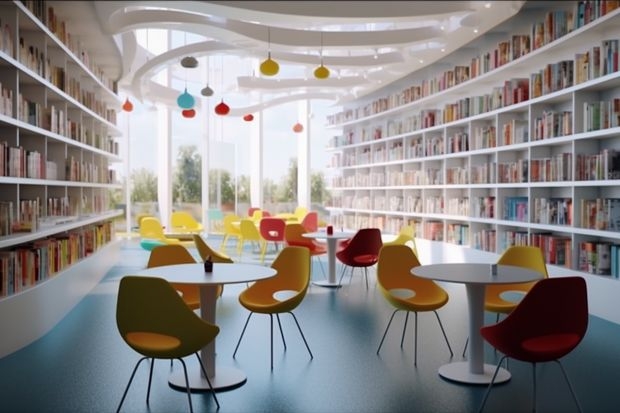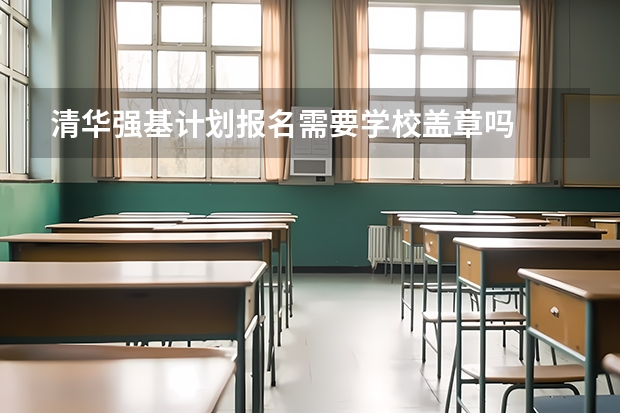法语怎么样 法语就业前景怎么样
2023-06-22 01:29:54 | 博考网

为什么女生千万不要学法语?哪个小语种就业前景好而且容易学?
女生在高考的时候,都想填报一个有就业前景的专业,这样以后毕业也会比较好找工作。那么网上为什么说女生千万不要学法语专业呢?本期我将详细为大家解答,并附上“哪个小语种就业前景好而且容易学”的解答。
一、哪个小语种就业前景好而且容易学?
1、法语
上帝赋予了法语浪漫的气息,其法语自带有一种浪漫的感觉。法语相对其它语种来说,比较严谨,且联合国的第一书写语言是法语,可见法语的前景是非常好的。法语只要用心学,其实是比较简单的,不过由于跟英语的发音差别较大,且一些小舌音发音特殊,所以学习期间一定要多听多说。
2、日语
随着中日交流的增加,越来越多的日企进驻中国,这些企业急需日语人才,所以学习日语还是比较好找工作的。另外,日语很多文字都来源于汉字,所以中国人学起来也会比较快,一般毕业之后可以到日企上班,或者当老师、涉外翻译,也可以去出版机构。

3、西班牙语
西班牙是近年来非常流行的语种,该语言在拉美地区使用范围较广,且西班牙语发音规则较为简单,27个字母有其特定的发音,所以只要会拼读刚开始学起来就很简单。
二、为什么女生千万不要学法语?
1、法语的发音比较特殊: 法语发音部位与英语的发音部位完全不同,我们学习英语可能比较习惯松弛的发音,两个语种发音的肌肉不同,且中国一直比较注重英语的学习,所以对于从小学习英语的我们,如果大学才开始学法语,一个是会不适应,另一个是英语说得越好,法语可能就越找不到正确发音部位和发音感觉。
2、法语的名词要记住阴性和阳性: 想要学好法语,需要掌握每一个名词是阴性还是阳性这个点,这是学习语法的基本,对于习惯了英语的我们来说,算是学习法语路上的第一个绊脚石。
因为以上两点,所以一些人会觉得学习法语比较累,尤其是对于英语较好的人来说。不过呢,“女生千万不要学法语”这样的劝退说法,我认为是不妥的。毕竟法语是除英语之外,使用国家最多,涉及范围最广的语种,比如说北京奥运会都是法英中三种语言进行播报,学习该专业的同学,毕业后不仅可以去外交部、商务部、外事办等部门,还可以到出版部门、外企就业,就业前景还是非常可观的。
以下是我整理出的 金平果排行榜《2021-2022年法语专业排名》 ,可以看出法语专业最好的大学是上海外国语大学,这所大学是新中国成立后兴办的第一所高等外语学府,是新中国外语教育的发行地之一。学校先后与56个国家和地区的360多所大学、文化教育机构和国际组织建立了合作关系是全球首批与联合国总部及各分支机构、欧盟委员会、欧洲议会签署合作框架协议的高校。所以报考该校,以后出国交流学习的机会是非常多的。

北京旅游景点介绍法语 北京法语导游词
寻找资料
金字塔
Pyramid of Giza
It is the one and only Wonder which does not require a description by early historians and poets. It is the one and only Wonder that does not need speculations concerning its appearance, size, and shape. It is the oldest, yet it is the only surviving of the Seven Ancient Wonders. It is the Great Pyramid of Giza.
Location
At the city of Giza, a necropolis of ancient Memphis, and today part of Greater Cairo, Egypt.
History
Contrary to the common belief, only the Great Pyramid of Khufu (Cheops), not all three Great Pyramids, is on top of the list of Wonders. The monument was built by the Egyptian pharaoh Khufu of the Fourth Dynasty around the year 2560 BC to serve as a tomb when he dies. The tradition of pyramid building started in Ancient Egypt as a sophistication of the idea of a mastaba or "platform" covering the royal tomb. Later, several stacked mastabas were used. Early pyramids, such as the Step Pyramid of King Zoser (Djoser) at Saqqara by the famous Egyptian architect, Imhotep, illustrate this connection.
The great pyramid is believed to have been built over a 20 year period. The site was first prepared, and blocks of stone were transported and placed. An outer casing (which disappeared over the years) was then used to smooth the surface. Although it is not known how the blocks were put in place, several theories have been proposed. One theory involves the construction of a straight or spiral ramp that was raised as the construction proceeded. This ramp, coated with mud and water, eased the displacement of the blocks which were pushed (or pulled) into place. A second theory suggests that the blocks were placed using long levers with a short angled foot.
Throughout their history, the pyramids of Giza have stimulated human imagination. They were referred to as "The Granaries of Joseph" and "The Mountains of Pharaoh". When Napoleon invaded Egypt in 1798, his pride was expressed through his famous quote: "Soldats! Du haut de ces Pyramides, 40 si_les nous contemplent". (Soldiers! From the top of these Pyramids, 40 centuries are looking at us)
Today, the Great Pyramid is enclosed, together with the other pyramids and the Sphinx, in the touristic region of the Giza Plateau. Also in the area is the museum housing the mysterious Sun Boat, only discovered in 1954 near the south side of the pyramid. The boat is believed to have been used to carry the body of Khufu in his last journey on earth before being buried inside the pyramid. It may also serve him as a means of transportation in his afterlife journey according to Ancient Egyptian beliefs.
Description
When it was built, the Great pyramid was 145.75 m (481 ft) high. Over the years, it lost 10 m (30 ft) off its top. It ranked as the tallest structure on Earth for more than 43 centuries, only to be surpassed in height in the nineteenth century AD. It was covered with a casing of stones to smooth its surface (some of the casing can still be seen near the top of Khefre's pyramid). The sloping angle of its sides is 51 degrees and 51 minutes. Each side is carefully oriented with one of the cardinal points of the compass, that is, north, south, east, and west. The horizontal cross section of the pyramid is square at any level, with each side measuring 229 m (751 ft) in length. The maximum error between side lengths is astonishingly less than 0.1%.
The structure consists of approximately 2 million blocks of stone, each weighing more than two tons. It has been suggested that there are enough blocks in the three pyramids to build a 3 m (10 ft) high, 0.3 m (1 ft) thick wall around France. The area covered by the Great pyramid can accommodate St Peter's in Rome, the cathedrals of Florence and Milan, and Westminster and St Paul's in London combined.
On the north face, is the pyramid's entrance. A number of corridors, galleries, and escape shafts either lead to the King's burial chamber, or were intended to serve other functions. The King's chamber is located at the heart of the pyramid, only accessible through the Great Gallery and an ascending corridor. The King's sarcophagus is made of red granite, as are the interior walls of the King's Chamber. Most impressive is the sharp-edged stone over the doorway which is over 3 m (10 ft) long, 2.4 m (8 feet) high and 1.3 m (4 ft) thick. All of the interior stones fit so well, a card won't fit between them. The sarcophagus is oriented in accordance with the compass directions, and is only about 1 cm smaller in dimensions than the chamber entrance. It might have been introduced as the structure was progressing.
New theories concerning the origin and purpose of the Pyramids of Giza have been proposed... Astronomic observatories... Places of cult worship... Geometric structures constructed by a long-gone civilization... Even extraterrestrial-related theories have been proposed with little evidence in support... The overwhelming scientific and historic evidence still supports the conclusion that, like many smaller pyramids in the region, the Great Pyramids were built by the great Ancient Egyptian civilization off the West bank of the Nile as tombs for their magnificent Kings... Tombs where Khufu, Khefre, and Menkaure could start their mystic journey to the afterlife.
北京天安门
主题:北京旅游景点天安门英文导游词
Tian’anmen Rostrum
Tian’anmen( the Gate of Heavenly Peace), is located in the center of Beijing. It was first built in 1417 and named Chengtianmen( the Gate of Heavenly Succession). At the end of the Ming Dynasty, it was seriously damaged by war. When it was rebuilt under the Qing in 1651, it was renamed Tian’anmen, and served as the main entrance to the Imperial City, the administrative and residential quarters for court officials and retainers. The southern sections of the Imperial City wall still stand on both sides of the Gate. The tower at the top of the gate is nine-room wide and five _room deep. According to the Book of Changes, the two numbers nine and five, when combined, symbolize the supreme status of a sovereign.During the Ming and Qing dynasties, Tian’anmen was the place where state ceremonies took place. The most important one of them was the issuing of imperial edicts, which followed these steps:
1) The Minister of Rites would receive the edict in Taihedian( Hall of Supreme Harmony), where the Emperor was holding his court. The minister would then carry the decree on a yunpan( tray of cloud), and withdraw from the hall via Taihemen( Gate of supreme Harmony)
2) The Minister would put the tray in a miniature longting( dragon pavilion). Beneath a yellow umbrella and carry it via Wumen( Meridian Gate), to Tian’anmen Gate tower.
3) A courtier would be invested to proclaim the edict. The civil and military officials lining both sides of the gateway beneath the tower would prostrate themselves in the direction of the emperor in waiting for the decree to the proclaimed.
4) The courtier would then put the edict in a phoenix-shaped wooden box and lower it from the tower by means of a silk cord. The document would finally be carried in a similar tray of cloud under a yellow umbrella to the Ministry of Rites.
5) The edict, copied on yellow paper, would be made known to the whole country.BRSuch a process was historically recorded as “ Imperial Edict Issued by Golden Phoenix”.During the Ming and Qing dynasties Tian’anmen was the most important passage. It was this gate that the Emperor and his retinue would go through on their way to the altars for ritual and religious activities.
On the Westside of Tian’anmen stands ZhongshanPark( Dr. Sun Yat-sen’s Park), and on the east side, the Working People’s Cultural Palave. The Park was formerly called Shejitan( Altar of Land and Grain), built in 1420 for offering sacrificial items to the God of Land. It was opened to the public as a park in 1914 and its name was changed in 1928 to the present one in memory of the great pioneer of the Chinese Democratic Revolution.The Working People’s Cultural Palace used to be Taimiao( the Supreme Ancestral Temple), where tablets of the deceased dynastic rulers were kept.
The stream in front of Tian’anmen is called Waijinshuihe( Outer Golden River),with seven marble bridges spanning over it . Of these seven bridges,historical records say the middle one was for the exclusive use of the emperor and was accordingly called Yuluqiao( Imperial Bridge). The bridges flanking it on either side were meant for the members of the royal family and were therefore called Wanggongqiao( Royal’s Bridges). Farther away on each side of the two were bridges for officials ranking above the third order and were named Pinjiqiao( ministerial Bridges). The remaining two bridges were for the use by the retinue below the third order and wre called Gongshengqiao( common Bridges). They anr the one in front of the Supreme Ancestral Temple to the east and the one in front of the Altar of land and Grain to the west.
The two stone lions by the Gate of Tian’anmen, one on each side were meant as sentries. They gaze toward the middle axis, guarding the emperor’s walkway. In front of the gate stands a pair of marble columns called Huabiao. They are elaborately cut in bas-relief following the pattern of a legendary dragon. Behind the gate stands another pair of similar columns. The story of Huabiao may be traced to a couple of sources. One of the versions accredits its invention to one of the Chinese sage kings named Yao, who was said to have set up a wooden pillar in order to allow the ordinary people to expose evil-doers, hence it was originally called a slander pillar. Later it ws reduced to a signpost, and now it serves as an ornament.
The beast sitting on the top of the column is called” hou”, a legendary animal, which is said to have been a watcher of an emperor’s behaviour. He was doing such duties as warning the emperor against staying too long outside t 博考网
免责声明:文章内容来自网络,如有侵权请及时联系删除。

天津商务职业学院应用法语(专科类)专业介绍 各位同学大家好,今天小编为您带来的是天津商务职业学院应用法语(专科类)介绍信息: 主修课程:法语精读、综合英语、国际贸易实务、商务法语、法语泛读、商务英语函电、法国概况、法语视听说、法语口笔译、商务礼仪、法语写作等。 就业方向:企事业单位和科研机关的国际交流、翻译、培训、管理等工作。 天津商务职业学院的最新专业信息请以官网为准!同时我们还为广大考

2021年网络安全与执法专业就业前景和大学排名解读 大学排名就业前景大学专业网络排名2021年前景就业安全解读网络安全执法景和20211年 网络安全与执法专业培养具有良好的科学素质、人文素质和警察基本素质,具备扎实的网络保卫执法的基础知识、基本技术,经过针对网站开发技术、网络情报技术、计算机犯罪侦查取证技术和网络监察技术的专门学习与训练,能在公安机关网络保卫执法部门及相关领域从事与

北京外国语大学泰语(本科类)专业介绍 各位同学大家好,今天小编为您带来的是北京外国语大学泰语(本科类)介绍信息: 泰语是泰国的国语和官方用语。 泰语专业创建于1965年,本科学制为四年。本专业还招收“泰语语言文学”、“翻译理论与实践”方向的硕士研究生以及“翻译研究”方向的博士研究生。 本专业师资力量雄厚,教师教学经验丰富,并长期有来自泰国的交流专家1名。

黑河学院俄语(本科类)专业介绍 各位同学大家好,今天小编为您带来的是黑河学院俄语(本科类)介绍信息: (本科、师范类):学制四年培养目标:培养德智体全面发展,具有创新精神和实践能力,具有扎实的俄语语言基础知识和听、说、读、写、译各项技能及广泛的俄语国家国情文化知识,能胜任中等教育学校的教学工作和外事外贸翻译工作的新型中等教育师资和管理人才。课程设置:俄语精读课、语音、语法、词汇、听力、口语、

陕西成人高考汉语言文学就业前景及方向? 【成考快速报名和免费咨询: https://www.87dh.com/xl/ 】陕西成人高考汉语言文学就业前景及方向。汉语言文学没接触过的人可能都不知道有这个专业,但是代表这个专业不行,发展就业前景还是不错的。那么陕西成人高考汉语言文学就业前景及方向。 陕西成人高考汉语言文学就业前景及方向一、学习的内容和发展方向学习的内容和发展方向主要学的有现代汉语

黑河学院书法学(本科类)专业介绍 各位同学大家好,今天小编为您带来的是黑河学院书法学(本科类)介绍信息: 书法学(师范类) 培养目标:本专业旨在培养具有宽厚的书法学科专业知识、较强的书法专业技能、较为宽阔的文化视野,以及良好的综合素质和创新能力,能够胜任书法创作、书法理论研究、书法教学以及书法艺术的综合应用等工作的实用型高级专门人才。本专业要求学生系统掌握书法基本理论、基本知识和基本技能,具

法医学专业就业前景? 法医学专业在专业学科中属于医学类中的法医学类,其中法医学类在整个医学大类中排名第28位。法医学专业就业岗位最多的地区是北京。薪酬最高的地区是北京。伴随着国家法制化建设进程的推进和对司法鉴定技术工作的日益重视,未来数年全国范围内对法医学专业毕业生需求量旺盛。 中国医科大学法医学(本科类)专业介绍 各位同学大家好,今天小编为您带来的是中国医科大学法医学(本科类)介绍信息:

河北政法职业学院法律文秘(专科类)专业介绍 各位同学大家好,今天小编为您带来的是河北政法职业学院法律文秘(专科类)介绍信息: 本专业主要培养适应河北省乃至全国各层次、各行业特别是各类中小型企业实际需要的,既掌握文秘基本理论和操作技能,又了解和掌握相关法律知识,集多种实用秘书技能于一身的高等技术应用性专门人才。本专业学生的就业方向是面向国家机关、企事业单位、法律服务部门的文秘及相关岗位。开设的
-
 2024年中小学期末考试时间安排表有哪些?
2024年中小学期末考试时间安排表有哪些?2024-02-29 00:40:50
-
 高考提档线是怎么确定的?
高考提档线是怎么确定的?2024-02-07 06:53:24
-
 都匀中学排名及录取分数线 都匀十中录取分数线
都匀中学排名及录取分数线 都匀十中录取分数线2024-04-06 01:39:17
-
 2023年西安高中录取分数线(西安中考排名一览表)
2023年西安高中录取分数线(西安中考排名一览表)2024-03-30 14:53:34
-
 语文合格考考必背篇目(24年高考语文必背篇目)
语文合格考考必背篇目(24年高考语文必背篇目)2024-03-12 06:14:09
-
 清华强基计划报名需要学校盖章吗
清华强基计划报名需要学校盖章吗2024-03-28 17:34:22